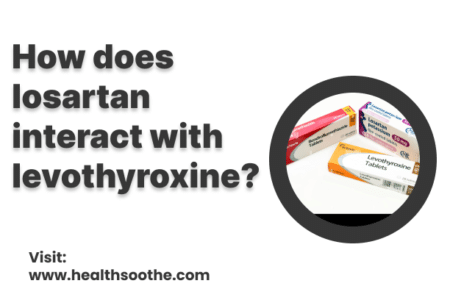Aspirin is a common medication known for its analgesic (pain-relieving), anti-inflammatory, and antipyretic (fever-reducing) properties. It is often used to relieve minor aches and pains, reduce inflammation, and lower fevers. Additionally, it has antiplatelet effects, meaning it can help prevent blood clot formation, making it useful in reducing the risk of heart attacks and strokes.
Levothyroxine is a synthetic form of the thyroid hormone thyroxine (T4). It is primarily used to treat hypothyroidism, a condition where the thyroid gland does not produce enough thyroid hormone. Levothyroxine works by supplementing the body with the thyroid hormone it lacks, helping to restore normal thyroid hormone levels and alleviate symptoms associated with hypothyroidism, such as fatigue, weight gain, and cold intolerance.
Interactions between your drugs
Aspirin Low Strength
A total of 343 medications have been identified to interact with Aspirin Low Strength.
Aspirin low strength belongs to the drug classes of platelet aggregation inhibitors and salicylates. It is prescribed to address the following conditions:
- Angina
- Prophylaxis for Angina Pectoris
- Heart Attack
- Ischemic Stroke
- Prophylaxis for Ischemic Stroke
- Prophylaxis for Myocardial Infarction
- Niacin Flush
- Prevention of Thromboembolism in Atrial Fibrillation
- Thrombosis Prophylaxis for Prosthetic Heart Valves
- Thrombosis Prophylaxis for Prosthetic Heart Valves with Mechanical Valves
- Prophylaxis for Revascularization Procedures
- Spondyloarthritis
- Prophylaxis for Thromboembolic Stroke
- Transient Ischemic Attack
levothyroxine
A total of 211 medications have been identified to interact with levothyroxine.
Levothyroxine belongs to the drug class of thyroid drugs. It is prescribed to address the following conditions:
- Hashimoto's disease
- Hypothyroidism following thyroid removal
- Myxedema Coma
- Thyroid Suppression Test
- TSH Suppression
- Underactive Thyroid
Read Also: Dental Side Effects Of The Drugs You Take
Pros and Cons of aspirin and levothyroxine
Pros and Cons of Aspirin:
Pros:
- Pain relief
- Anti-inflammatory properties
- Fever reduction
- Cardiovascular benefits
Cons:
- Gastrointestinal irritation
- Risk of bleeding
- Reye's syndrome
Pros and Cons of Levothyroxine:
Pros:
- Treatment of hypothyroidism
- Symptom relief
- Maintenance therapy
Cons:
- Overmedication risk
- Time to reach optimal levels
- Interactions with other medications and substances
Differences Between aspirin and levothyroxine
Aspirin:
Used for pain relief, reducing inflammation, lowering fevers, and preventing blood clots in individuals at risk of heart attacks and strokes.
Levothyroxine:
Used to treat hypothyroidism, which occurs when the thyroid gland does not produce enough thyroid hormone, leading to symptoms such as fatigue, weight gain, and cold intolerance.
Alternative to aspirin and levothyroxine
Alternatives to Aspirin:
Nonsteroidal anti-inflammatory drugs (NSAIDs):
NSAIDs such as ibuprofen (Advil, Motrin) and naproxen (Aleve) are alternative options for pain relief and reducing inflammation. They work by inhibiting the enzyme cyclooxygenase (COX) and have similar effects to aspirin but may have different side effect profiles.
Alternatives to Levothyroxine:
Natural desiccated thyroid (NDT):
Natural desiccated thyroid hormones, derived from animal thyroid glands, contain a combination of thyroxine (T4) and triiodothyronine (T3). Some patients may prefer NDT over levothyroxine due to individual responses or preferences.
Drug and food interactions
levothyroxine food
The dosing interval for T4 thyroid hormone (levothyroxine) may need adjustment due to the impact of certain foods and meal timing on its absorption. Fasting increases T4 absorption, while foods such as soybean flour (found in infant formula), cotton seed meal, walnuts, dietary fiber, calcium, and calcium-fortified juices can decrease absorption.
To manage this:
- Administer T4 thyroid hormone consistently at the same time each day, preferably without large variations in meal timing.
- Avoid foods that may affect T4 absorption for several hours before and after dosing, if possible.
- For patients receiving continuous enteral nutrition for more than 7 days, it's recommended to interrupt tube feeding for at least 1 hour before and 1 hour after levothyroxine administration, and closely monitor their thyroid function.
aspirin food
It is generally advised to avoid simultaneously using aspirin or nonsteroidal anti-inflammatory drugs (NSAIDs) with ethanol (alcohol) due to the risk of gastrointestinal (GI) bleeding. This risk arises from a combination of local effects and the inhibition of prostaglandins, which can compromise the integrity of the GI lining.
To manage this:
- Patients should be informed about the potential interaction and advised to abstain from alcohol consumption while taking aspirin or NSAIDs.
levothyroxine food
ADJUST DOSING INTERVAL: When calcium-containing products are administered concurrently, it may reduce the oral bioavailability of levothyroxine by approximately one-third in certain patients, potentially diminishing the pharmacological effects of levothyroxine. The precise mechanism of this interaction is not fully understood, but it may involve the nonspecific binding of levothyroxine to calcium at acidic pH levels, forming an insoluble complex that is poorly absorbed from the gastrointestinal tract.
A study involving 20 hypothyroid patients on a stable long-term levothyroxine regimen showed modest yet significant decreases in mean free and total thyroxine (T4) levels, along with a corresponding increase in mean thyrotropin (TSH) level after the addition of calcium carbonate (1200 mg/day of elemental calcium) for 3 months.
Notably, four patients exhibited serum TSH levels exceeding the normal range, and both T4 and TSH levels returned to near-baseline levels within 2 months of discontinuing calcium supplementation, further supporting the likelihood of an interaction. Additionally, case reports have suggested decreased levothyroxine efficacy during coadministration with calcium. It remains unclear whether this interaction occurs with other thyroid hormone preparations.
MANAGEMENT: Some experts advise separating the administration times of levothyroxine and calcium-containing preparations by at least 4 hours. Regular monitoring of serum TSH levels is recommended. Patients with gastrointestinal or malabsorption disorders may be particularly vulnerable to developing clinical or subclinical hypothyroidism due to this interaction.
aspirin food
A study has found that combining caffeine with aspirin results in a 25% increase in the rate at which salicylate appears in the plasma and a 17% increase in its maximum concentration. Moreover, there was a significantly higher area under the plasma concentration-time curve for salicylate when both drugs were taken together. Although the exact mechanism of this interaction has not been identified, it's essential for physicians and patients to recognize that concurrent use of aspirin and caffeine can elevate salicylate levels more rapidly.
Conclusion
The interaction between aspirin and levothyroxine primarily involves a reduction in the oral bioavailability of levothyroxine, potentially leading to decreased effectiveness of the medication in managing hypothyroidism. This reduction in bioavailability is thought to occur due to nonspecific adsorption of levothyroxine to calcium at acidic pH levels, forming an insoluble complex that is poorly absorbed from the gastrointestinal tract.
Consequently, it is recommended to separate the administration times of levothyroxine and calcium-containing preparations by at least 4 hours to mitigate this interaction and ensure optimal therapeutic outcomes. Regular monitoring of serum thyroid-stimulating hormone (TSH) levels is also advised, especially for patients with gastrointestinal or malabsorption disorders who may be more susceptible to developing clinical or subclinical hypothyroidism as a result of this interaction.



